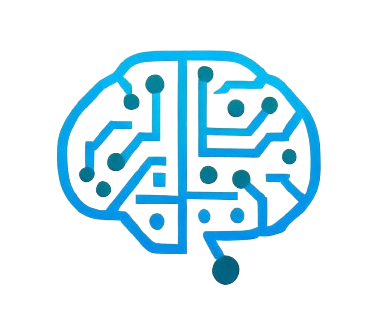In recent years, the collaboration between machine learning and the gaming industry has opened up exciting possibilities. Developers are using machine learning to go beyond the limits of traditional gaming, creating virtual worlds that are not just visually appealing but also dynamic, responsive, and deeply immersive.
 Machine learning is revolutionizing the gaming industry by significantly improving graphics and realism. Traditional graphics techniques are being replaced by more advanced methods powered by machine learning algorithms, resulting in a leap forward in the visual quality of games. These algorithms, like neural networks and deep learning models, analyze extensive datasets to create visuals that are not only realistic but also show detail and nuance like never before.
Machine learning is revolutionizing the gaming industry by significantly improving graphics and realism. Traditional graphics techniques are being replaced by more advanced methods powered by machine learning algorithms, resulting in a leap forward in the visual quality of games. These algorithms, like neural networks and deep learning models, analyze extensive datasets to create visuals that are not only realistic but also show detail and nuance like never before.
For instance, take the game “Horizon Zero Dawn.” Machine learning is crucial in crafting detailed characters and breathtaking visuals, utilizing advanced rendering techniques to simulate realistic lighting effects. Another example is “Red Dead Redemption 2,” where sophisticated algorithms simulate natural elements, creating a visually stunning virtual world. Machine learning dynamically adjusts the game’s visuals based on player actions, ensuring a continually captivating experience.
Machine learning’s application in graphics extends beyond static visuals. Games like “NVIDIA’s DLSS (Deep Learning Super Sampling)” showcase real-time use of machine learning to enhance image quality without compromising performance. This is particularly important in virtual reality, where high-resolution visuals are essential for an immersive experience.
Dynamic Gameplay
Machine learning is not only changing how games look but also how they play, ushering in an era of dynamic and adaptive gameplay that responds intricately to player choices. Instead of following predefined paths, games now use machine learning to craft experiences that evolve based on each player’s unique decisions.
Consider the game “The Witcher 3: Wild Hunt.” Machine learning is seamlessly integrated to create a narrative that adapts to player choices, impacting the storyline and character relationships. The game goes beyond binary choices, using machine learning algorithms to assess the player’s moral compass and preferences. This results in each playthrough being a distinct experience, with consequences shaping the narrative in a personalized and meaningful way.
Another example is “Detroit: Become Human,” where machine learning creates a branching narrative based on the player’s moral and ethical decisions. Characters in the game have artificial intelligence that learns from player choices, influencing attitudes, relationships, and the course of the storyline.
In games like “Middle-earth: Shadow of Mordor,” machine learning introduces the Nemesis System, crafting a dynamic hierarchy of enemies that adapt to player actions. Enemies remember previous encounters, evolving based on successes and failures. This not only provides a continuous challenge but also ensures each player’s experience is unique, fostering a sense of immersion and personalization.
In sports simulation games like “FIFA,” machine learning creates adaptive AI opponents by analyzing player patterns and adjusting strategy and difficulty dynamically. This ensures the gaming experience remains engaging, catering to players of varying expertise.
Player Engagement and Retention
Machine learning emerges as a game-changer, transforming how developers connect with and keep their player base. The combination of advanced analytics and predictive modeling through machine learning algorithms opens up new possibilities for creating personalized gaming experiences, reinforcing strategies to engage and retain players.
Games like “Fortnite” showcase how seamlessly machine learning becomes part of player engagement. Through detailed analytics, the game not only observes player behavior but also predicts preferences, providing personalized recommendations for in-game purchases. Understanding each player’s unique style, preferences, and spending habits, machine learning algorithms offer tailored suggestions, enhancing the overall gaming experience and building a personal connection between the player and the game.
Games like “Overwatch” craft dynamic challenges with the help of machine learning. These challenges adapt to the player’s skill level and playing style, ensuring a consistently engaging experience. The AI analyzes player performance, learning from both successes and failures, and adjusts the difficulty level to maintain a perfect balance between challenge and enjoyment.
 Loyalty programs and personalized incentives, driven by machine learning algorithms, play a significant role in keeping players committed. Games like “League of Legends” use machine learning to offer rewards and incentives tailored to individual player preferences and achievements.
Loyalty programs and personalized incentives, driven by machine learning algorithms, play a significant role in keeping players committed. Games like “League of Legends” use machine learning to offer rewards and incentives tailored to individual player preferences and achievements.
In mobile gaming, applications like “Clash Royale” utilize machine learning to analyze player interactions, adjust matchmaking algorithms, and ensure players face consistent challenges.
Challenges and Ethical Considerations
While the adoption of machine learning in gaming offers various benefits, it introduces challenges and ethical considerations. As the industry embraces personalized and data-driven approaches, navigating the complexities related to player privacy, algorithmic bias, and potential unintended consequences becomes imperative.
Games like “FIFA” have faced scrutiny due to the implementation of dynamic difficulty adjustment (DDA), a system driven by machine learning that adjusts the game’s difficulty based on player performance. Critics argue that DDA can unintentionally impact player experiences, potentially leading to frustration or a lack of genuine accomplishment. Striking the right balance between providing a challenging experience and avoiding unfair advantages is a delicate task that requires constant refinement and consideration of player feedback.
Data privacy becomes increasingly important as machine learning algorithms process vast amounts of player data to tailor gaming experiences. Games like “Assassin’s Creed Valhalla” use machine learning to analyze player preferences and behaviors, customizing in-game elements accordingly. The ethical dilemma arises when players are unaware of the extent to which their data is being utilized or if they have not explicitly consented to such personalization.
Algorithmic bias poses another challenge in the context of machine learning in gaming. If the training data used to develop machine learning models is biased, it can result in discriminatory outcomes. Games that rely on machine learning for character interactions, such as “Mass Effect: Andromeda,” may inadvertently perpetuate stereotypes or exhibit biased behavior.
The potential for addiction is a significant ethical consideration as machine learning algorithms optimize games for player retention. Games like “Candy Crush” leverage machine learning to analyze player behavior and deliver precisely timed incentives to keep players engaged. Striking a balance between creating engaging experiences and preventing addictive behaviors poses a considerable challenge. Developers must adopt responsible design practices and consider the psychological impact of machine learning-driven mechanics on vulnerable populations.
